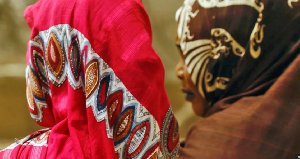Ghanaian youth in the diaspora represent a varied and heterogeneous group, including youth who entered other countries through legal and illegal channels, trafficked youth, seasonal migrants, second and third generation migrants who were born in the country, international students, among others. They are in a unique position to support the development process back home.
Many are the times when our leaders and influential people in society have made distress calls to Ghanaians especially the youth to return home and contribute their quota to the development of the country. The latest came from the reigning CIMG Marketing Man of the Year, Roland Agambire, who told African Youth leaving and studying abroad that they “owe it a moral duty to return to their countries and bring their international exposure and knowledge to bear on ongoing reconstruction efforts on the continent.” Agambire made the statement at the just-ended International Conference on Entrepreneurship and Leadership at the Robert Gordon University in Aberdeen, Scotland.
According to him, it is possible for the various African countries to emerge from the current quagmire of under-development and socio-economic instabilities to become the economic giant of the world. “All it takes is good leadership and a real commitment to succeed.” In his words, “given the enormous commitment by governments in the region to adopt the developmental democracy path, the educated youth would be required to play important role, both in governance and in business.”
Most Ghanaians abroad are doing very well in their chosen fields. A Ghanaian was recently honoured in America at the White House for his contributions.
Although these calls are being made, it seems the situation is not likely to change. Even students on government scholarships hardly come back to contribute to developing the economy, after their studies.
Research shows that the trend for young doctors and nurses to seek higher salaries and better working conditions, mainly in higher income countries of the West, is having serious impacts on the health care sector in Ghana. For example, it is estimated that there is one doctor per every 6700 inhabitants in Ghana compared to one doctor per 430 people in the United States. Many of the country's trained doctors and nurses leave to work in countries such as Britain, the United States, Jamaica and Canada. This migration for greener pastures is referred to by many as the brain drain.
Countries in Sub-Saharan Africa have lost a tremendous amount of their educated and skilled populations as a result of emigration to more developed countries, which has harmed the ability of such nations to get out of poverty.
Studies again show that young, well-educated, healthy individuals are most likely to migrate, especially in pursuit of higher education and economic improvement. The distinction between ‘push’ and ‘pull’ factors has been recognized. Continuing disparities in working conditions between rich and poor countries offer a greater ‘pull’ towards the more developed countries. The role of governments and recruitment agencies in systematically encouraging the migration of professionals increases the pull. Migrant professionals are faced with a combination of economic, social and psychological factors, and family choices, and reflect the ‘push–pull’ nature of the choices underpinning these ‘journeys of hope’. De-motivating working conditions, coupled with low salaries, are set against the likelihood of prosperity for themselves and their families, work in well-conditioned environment, and the opportunity for professional development.
In our world in which the generation of new knowledge and its application to change the human condition is the engine which moves human society further away from barbarism, do we not have need to appeal to Ghana's hundreds of thousands of intellectuals to come back from their places of emigration in Western Europe and North America? I dream of the day when the Ghanaian mathematicians and computer specialists in Washington and New York, the Ghanaian physicists, engineers, doctors, business managers and economists, will return from London and Manchester and Paris and Brussels to add to the Ghanaian pool of brain power, to enquire into and find solutions to Ghana’s problems and challenges; to open the Ghanaian door to the world of knowledge; and to elevate Ghana's place within the universe of research, new knowledge, education and information.
This article is not to discouraging globalisation or free trade. Brain drain cannot be stopped entirely because it may lead to an unstable state and may impinge upon personal freedom. Obviously, brain drain contributes to our National Income through Net Factor Income from abroad. Remittances from expatriates living abroad constitute a significant proportion of foreign revenue for many developing countries. Students who go out for further studies and come back to their home country bring in more talent and experience. This article is to make the Ghanaian youth in the diaspora to be part and parcel of the Ghanaian economy.
The African brain drain has begun to reverse itself due to rapid economic growth in many African nations. Ghana is now one of the fastest growing economies in Africa. This, together with increased development, introduction of technologies such as fast Internet and smart mobile phones, a better-educated population, a new tech start-up companies has resulted in many expatriates from Africa returning to their home countries, and more Africans staying at home to work.
No matter what we do, the brain-drain cannot be stopped because of the mindset of people. However, if measures are taken, it can be controlled and youth in the diaspora whether they come home or stay abroad can contribute to the economy. There is therefore the need to create opportunities for Ghanaians, especially youth in the diaspora to contribute to and benefit from Ghana's socio-economic development.
This could be done by:
? Fostering understanding between Ghana and receiving countries to facilitate integration and protection of Ghanaian youth living in the Diaspora;
? Using effective media campaigns to alert Ghanaian youth to the realities of emigrating overseas;
? Formulating policies to attract remittances and promote investment by young Ghanaians living abroad, including creating a conducive environment to attract Ghanaian youth in the Diaspora to contribute to the country's development;
? Establishing structures that encourage and assist Ghanaian youth in the Diaspora to return and fully re-integrate into the social and economic life of Ghana;
? Creating a platform for keeping Ghanaian youth in the Diaspora informed about new and interesting developments in the country for possible investments by young people in the Diaspora;
? Creating a platform for including Ghanaian youth in the Diaspora in decision-making process in order to give them opportunities to express their views and expectations; and
? Making provision for the youth in the Diaspora and include their needs in the action planning.
If the youth in the diaspora can get these provisions in their country, the brain-drain can definitely be controlled and the Ghanaian youth is more likely to be motivated to contribute to the development of the economy.
Opinions of Monday, 10 February 2014
Columnist: Ayamga, Elizabeth Alampae














